
Maintaining a lush and vibrant garden requires careful attention to various factors, and the quality of water you use is no exception. Homeowners investing time and effort into cultivating beautiful backyards, front yards, and gardens in Maryland understand the importance of providing their plants with the best possible environment to thrive.
In this comprehensive guide, we will explore the four main types of water treatment systems – RO systems, water distillers, iron water filters, and activated carbon filters – to help you make an informed decision on the best water for your plants.
Reverse Osmosis Systems
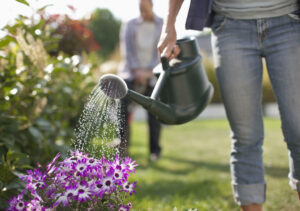
Reverse osmosis (RO) systems have gained popularity for their ability to provide purified water by removing contaminants through a semi-permeable membrane. While RO systems are highly effective at eliminating a wide range of impurities, including minerals, salts, and microorganisms, their application in gardening has advantages and disadvantages.
Advantages of RO for Gardening:
Purity Beyond Compare: RO systems excel in producing water of unparalleled purity, free from contaminants that could hinder plant growth. This ensures that your garden receives water that is nearly devoid of impurities, allowing your plants to absorb essential nutrients more efficiently.
Consistent pH Levels: RO water tends to have a neutral pH, which can be beneficial for gardeners seeking precise control over the acidity or alkalinity of their soil. This consistency allows for a more stable and controlled growing environment.
Reduced Risk of Soil Salinity: RO water helps prevent the buildup of salts in the soil, a common issue with other water sources. Excessive salts can damage plant roots and hinder nutrient absorption, making RO water an excellent choice for maintaining soil health.
Disadvantages of RO for Gardening:
Wastewater Production: RO systems generate a significant amount of wastewater during the filtration process. This excess water may pose environmental concerns and be a drawback in regions facing water scarcity issues.
Nutrient Stripping: While RO systems remove impurities, they also strip water of essential minerals that plants need for optimal growth. Gardeners using RO water may need to supplement their plants with additional nutrients to compensate for this deficiency.
Water Distillers
Water distillation involves the heating of water to produce steam, which is then condensed back into liquid form. This process effectively removes impurities, resulting in distilled water. Let’s explore the advantages and disadvantages of using distilled water in gardening.
Advantages of Water Distillers for Gardening:
Purity Comparable to RO: Like RO systems, water distillers offer high-purity water by eliminating various contaminants. This ensures that your plants receive water free from impurities that could hinder their development.
Mineral-Free Water: Distilled water is devoid of minerals, providing a clean slate for gardeners who wish to have precise control over the nutrient content of their soil. This is especially useful for those growing plants with specific mineral requirements.
Reduced Soil Salinity: Similar to RO water, distilled water helps prevent the accumulation of salts in the soil, promoting healthier plant growth.
Disadvantages of Water Distillers for Gardening:
Energy Intensive: Water distillation is energy-intensive, which may result in higher operational costs for homeowners. Additionally, the environmental impact of energy consumption should be taken into consideration.
Nutrient Depletion: Distilled water lacks essential minerals, and prolonged use may lead to nutrient depletion in the soil. Gardeners must carefully monitor and supplement their plants to ensure they receive the nutrients for robust growth.
Activated Carbon Filters
Activated carbon filters are widely used for their ability to adsorb impurities and improve water taste and odor. While they may not provide the same level of purification as RO systems or distillers, activated carbon filters have advantages and disadvantages for gardening.
Advantages of Carbon Filters for Gardening:
Improved Taste and Odor: Activated carbon filters enhance the taste and odor of water by adsorbing organic compounds that contribute to unpleasant flavors and smells. This can be particularly beneficial for gardeners using water from sources with undesirable characteristics.
Removal of Chlorine: Carbon filters effectively remove chlorine, a common additive in municipal water supplies. It can harm plants, and its removal contributes to a healthier water source for gardening.
Cost-Effective: Compared to RO systems and water distillers, activated carbon filters are generally more cost-effective to install and maintain, making them an attractive option for budget-conscious homeowners.
Disadvantages of Carbon Filters for Gardening:
Limited Contaminant Removal: While carbon filters excel at removing certain impurities, they may not eliminate minerals and salts to the extent that RO systems and distillers do. Gardeners relying solely on carbon-filtered water should be aware of potential nutrient imbalances in the soil.
Filter Replacement: Activated carbon filters require regular replacement to maintain their effectiveness. This ongoing cost should be factored into the overall expense of using carbon-filtered water for gardening.
Iron Water Filters
For homeowners in Maryland dealing with iron-rich water sources, the presence of iron in their gardening water can present unique challenges. Iron water filters specifically target iron contaminants, offering a tailored solution to address this issue. Let’s explore the advantages and disadvantages of using iron removal filters for gardening.
Advantages of Iron Water Filters for Gardening:
Iron Removal: The primary benefit of iron water filters is their ability to effectively remove iron from the water. Iron, when present in excessive amounts, can be detrimental to plants, causing issues such as stunted growth and yellowing of leaves. Iron filters ensure that your garden receives iron-free water, promoting healthier and more robust plant development.
Prevention of Iron Staining: Iron-rich water can lead to unsightly stains on plant leaves, pots, and other garden structures. Iron water filters prevent these stains by removing iron particles from the water, maintaining the aesthetic appeal of your garden.
Improved Soil Health: These filters improve soil health by eliminating excess iron. Iron accumulation in the soil can negatively impact its structure and microbial activity. Iron water filters help maintain a balanced and fertile soil environment.
Disadvantages of Iron Water Filters for Gardening:
Ongoing Maintenance: Iron removal filters require regular maintenance to ensure optimal performance. Periodic cleaning and replacement of filter media are essential to prevent clogging and maintain the filter’s effectiveness.
Initial Cost: The upfront cost of installing the filter may be higher than other water treatment options. However, homeowners should view this as a long-term investment in the health and vitality of their garden.
FAQs: Nurturing Your Garden
Should I use filtered water on my plants?
Filtered water can benefit plants by removing impurities, such as chlorine and sediment, that may hinder growth. It ensures your garden receives cleaner water, promoting healthier and more vibrant plants.
Is tap water bad for plants?
While tap water is generally safe for plants, its quality varies. Some tap water contains minerals or additives that might affect plant health. Using a water treatment system, like an iron filter for water purifiers, can enhance the quality of tap water for your garden.
Is well water bad for plants?
Well, water can be rich in minerals, including iron, which may adversely affect plants. An iron filter for well water is a practical solution to eliminate excess iron and create a more favorable environment for plant growth.
How do I know what is in my water?
Water testing is essential to determine the composition of your water. Many water treatment companies offer comprehensive testing services, helping you identify specific contaminants and tailor your water treatment approach accordingly.
What are the symptoms of an unhealthy plant?
Signs of unhealthy plants include yellowing leaves, stunted growth, and wilting. These symptoms may be indicative of nutrient deficiencies or the presence of harmful substances in the water. Regularly assessing your plants’ health can guide your water treatment decisions.
What is the best water for plants?
The best water for plants depends on your specific circumstances. If dealing with iron-rich water, an iron water filter becomes crucial. Filtered water, free from impurities, or distilled water with controlled mineral content are also excellent choices. Understanding your water quality helps determine the most suitable treatment for your garden. It is best to consult a professional water treatment company that can help you test the water and recommend the ideal solution.
How Our Water Treatment Company in Maryland Can Help
Elevate your gardening experience with our advanced water treatment solutions tailored for Maryland homeowners. At Peninsula Water Conditioning Inc., we understand the unique challenges posed by iron-rich water, tap water impurities, and the diverse needs of your garden. Our state-of-the-art iron water filters, meticulously designed for water purifiers and well systems, guarantee a flourishing garden by eliminating harmful contaminants.
Experience the convenience of filtered, distilled, or RO water, precisely customized to suit your gardening requirements. With our expertise and cutting-edge technology, we offer more than just water treatment. We provide a key to unlocking the full potential of your plants. Embrace a vibrant, healthier garden with water that nurtures and revitalizes.
Take the first step towards a thriving garden today. Contact us today at service@peninsulawater.com or call and schedule an appointment at 410-341-6500 for a personalized consultation. Discover how Peninsula Water Conditioning Inc. can transform your water, ensuring your plants receive the care they deserve.
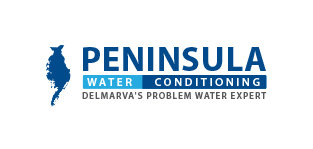

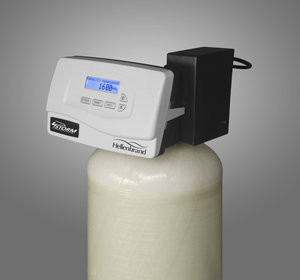
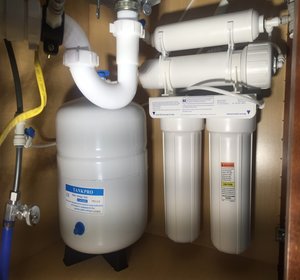
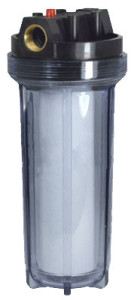
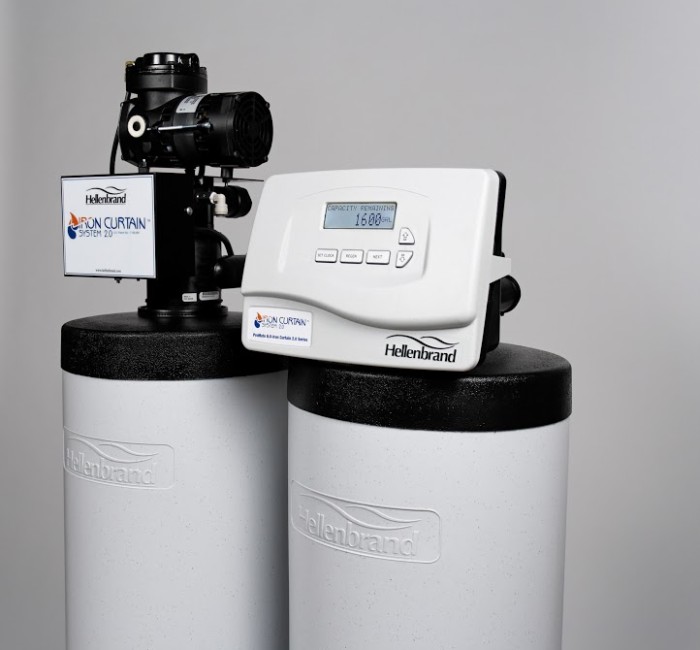
No Comments